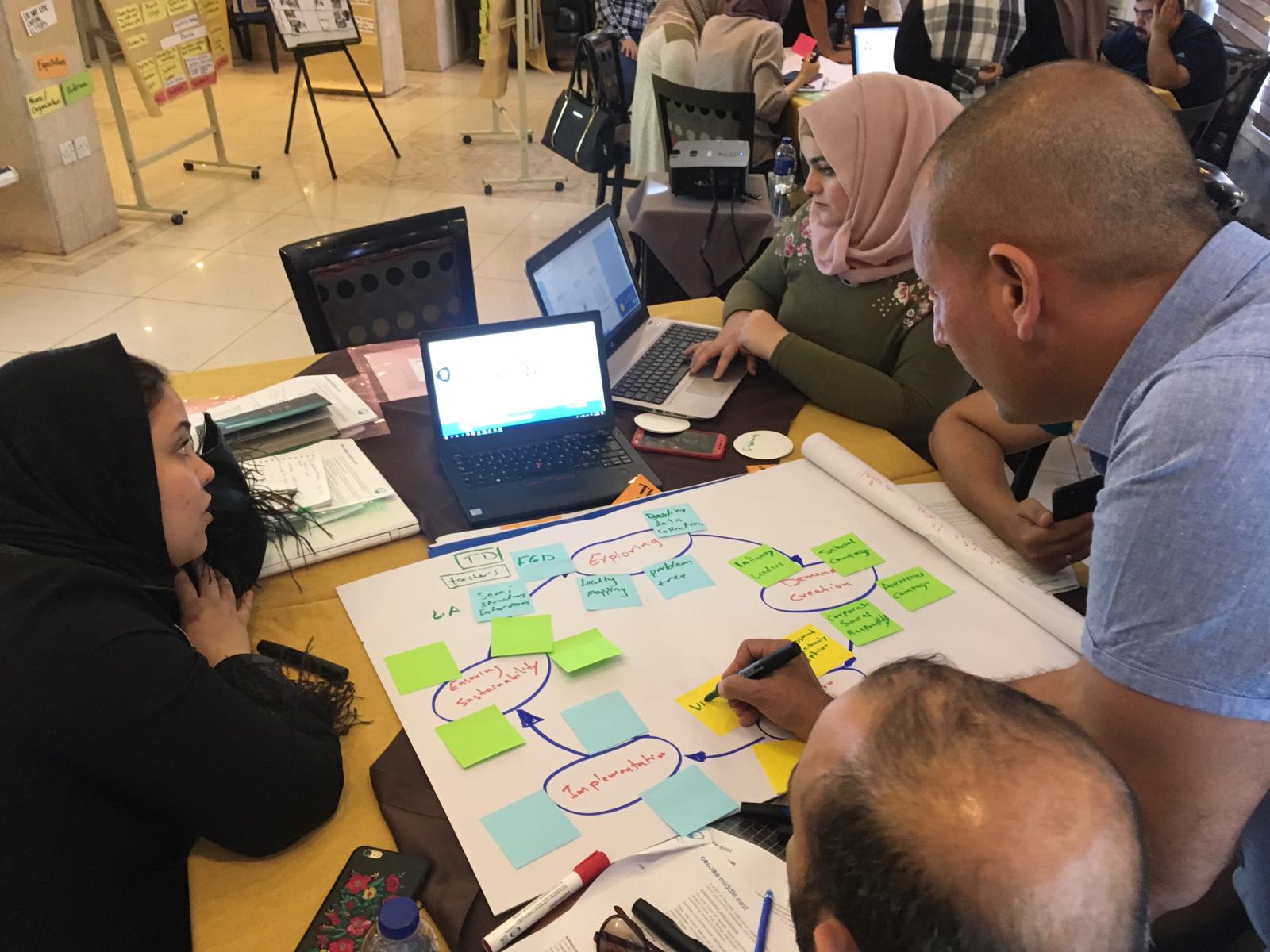
cewas Middle East, in collaboration with BORDA-Wesca and the WASH Cluster in Iraq, offered the second SSWM Training in Baghdad. The goal was to activate a change in the planning, design, implementation and maintenance of sustainable sanitation systems, water and resource management at the local level, through a holistic approach of resource management and a participatory approach. The training course empowered participants, who understood the concepts behind SSWM and who knew about relevant tools for planning, designing and implementing local initiatives in the field of sanitation and water management. The five-day training workshop started from April 14th to 18th 2019 in Baghdad, Iraq.
More about SSWM Trainings
The training, which has been successfully taken by more than 700 participants in Europe, Asia, Africa and Latin America, builds on the SSWM Toolbox (www.sswm.info) and aims at linking up sustainable sanitation, water management and agriculture at the local level and in practice. The SSWM Training course enables participants to fully exploit the benefits of the SSWM Toolbox and develops a thorough understanding of Sustainable Sanitation and Water Management. This 5-day SSWM Training Course follows a participatory, cross-institutional and interdisciplinary approach. While outlining the training programme, great emphasis is laid on participants’ interaction: besides face-to-face lectures, group works and case studies, field visits to existing projects and role-plays reveal creativity and make participants think in a holistic way.
The Sustainable Sanitation and Water Management Training course is ideal for professionals working as: technical staff of Municipalities and governmental offices, Non-governmental organisations (NGOs) and civil society groups dealing with water management and sanitation issues, engineers and practitioners from the private sector, local and international service providers, University professors, students and researchers, members of local and international NGOs and entrepreneurs working in the water and sanitation sector.
- Log in to post comments

